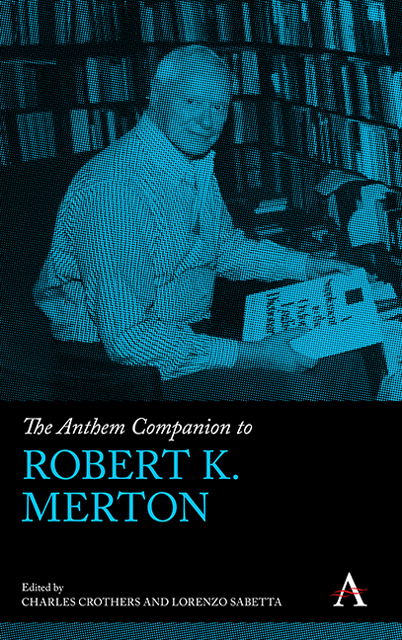Book contents
- Frontmatter
- Dedication
- Contents
- List of Figures and Tables
- Chapter One Introduction: Merton’s Self-Exemplifying Classical Sociological Contributions
- Chapter Two Skeptical Faith, Left Politics, and the Making of Young Robert K. Merton
- Chapter Three Theorist’s Progress: Young Robert K. Merton, 1941–1949
- Chapter Four Taking a Seminar with Merton
- Chapter Five The Development of Mertonian Status-and-Role Theory
- Chapter Six Theory as an Option or Theory as a Must? The Bearing of Methodological Choices on the Role of Sociological Theory
- Chapter Seven “Interviews of a Special Type”: Robert K. Merton and Codification of the Focused Interview
- Chapter Eight Science as a Culture
- Chapter Nine “Providing Puzzles”: Science as Norms and Values
- Chapter Ten A Mertonian Breviary for Cultural Sociologists
- Chapter Eleven The Unpublished Robert K Merton
- Author Biographies
- Index
Chapter Seven - “Interviews of a Special Type”: Robert K. Merton and Codification of the Focused Interview
Published online by Cambridge University Press: 10 January 2023
- Frontmatter
- Dedication
- Contents
- List of Figures and Tables
- Chapter One Introduction: Merton’s Self-Exemplifying Classical Sociological Contributions
- Chapter Two Skeptical Faith, Left Politics, and the Making of Young Robert K. Merton
- Chapter Three Theorist’s Progress: Young Robert K. Merton, 1941–1949
- Chapter Four Taking a Seminar with Merton
- Chapter Five The Development of Mertonian Status-and-Role Theory
- Chapter Six Theory as an Option or Theory as a Must? The Bearing of Methodological Choices on the Role of Sociological Theory
- Chapter Seven “Interviews of a Special Type”: Robert K. Merton and Codification of the Focused Interview
- Chapter Eight Science as a Culture
- Chapter Nine “Providing Puzzles”: Science as Norms and Values
- Chapter Ten A Mertonian Breviary for Cultural Sociologists
- Chapter Eleven The Unpublished Robert K Merton
- Author Biographies
- Index
Summary
As in World War I, entry of the United States into war in 1941 saw social scientists mobilize in support of the war effort. Among a number of other agencies, the Research Branch of the US Army's Information and Education Division (originally the Morale Division), directed by Samuel Stouffer, sought to harness then state-of-the-art social and psychological research methods to improve the effectiveness of America's fighting capability (Converse 1987). As Simonson (2005, 2010) recounts, Robert K. Merton threw himself into war-related work, becoming involved in a number of projects that dealt in various ways with the effectiveness of propaganda. Part of this effort involved Merton in work for the Research Branch, directed by the Yale University psychologist, Carl Hovland, examining the effects of morale and training films by interviewing groups of service personnel. In mid-1943, Merton thought he might be drafted. He therefore decided to devote his attention to codification of what he had begun to call “the focussed group interview” (1998, 207–208), having reached an agreement with Stouffer and Hovland that the material could be published independently.
Merton himself addressed the development of the focused interview in a 1987 article that explored the relationship between the method and contemporary focus group research, drawing on some of his own thinking on the sociology of science. David Morrison (1998) later addressed the topic in his history of focus group research with some emphasis on the intersecting roles of Lazarsfeld, Merton, and Theodor Adorno. Lee (2010) examined the reception and diffusion of The Focused Interview but did not consider how Merton's work had emerged or the immediate context surrounding it. More recently, Mark Tadajewski has located focused interviewing in relation to various strands of what he calls “non-individualistic consumer research” (2015). Peter Simonson (2010) has produced an engaging and evocative account of Merton's life and career. He has, however, been consistently critical of the failure of Merton and other commentators to acknowledge contributions made in the pre-war period to the development of focused interviewing by Herta Herzog. Simonson's recovery of Herzog's contribution forms part of a wider body of work exploring the highly gendered nature of the organizational and social relationships at the Office of Radio Research (ORR) and the Bureau of Applied Social Research (McCormack 2008; Rowland and Simonson 2014; Ashcraft and Simonson 2016).
- Type
- Chapter
- Information
- The Anthem Companion to Robert K. Merton , pp. 133 - 150Publisher: Anthem PressPrint publication year: 2022



